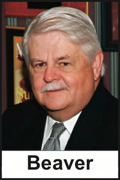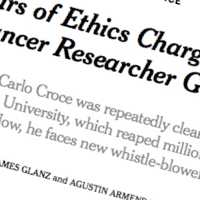Rascals case in brief
In the beginning, in 1989, more than 90 children at the Little Rascals Day Care Center in Edenton, North Carolina, accused a total of 20 adults with 429 instances of sexual abuse over a three-year period. It may have all begun with one parent’s complaint about punishment given her child.
Among the alleged perpetrators: the sheriff and mayor. But prosecutors would charge only Robin Byrum, Darlene Harris, Elizabeth “Betsy” Kelly, Robert “Bob” Kelly, Willard Scott Privott, Shelley Stone and Dawn Wilson – the Edenton 7.
Along with sodomy and beatings, allegations included a baby killed with a handgun, a child being hung upside down from a tree and being set on fire and countless other fantastic incidents involving spaceships, hot air balloons, pirate ships and trained sharks.
By the time prosecutors dropped the last charges in 1997, Little Rascals had become North Carolina’s longest and most costly criminal trial. Prosecutors kept defendants jailed in hopes at least one would turn against their supposed co-conspirators. Remarkably, none did. Another shameful record: Five defendants had to wait longer to face their accusers in court than anyone else in North Carolina history.
Between 1991 and 1997, Ofra Bikel produced three extraordinary episodes on the Little Rascals case for the PBS series “Frontline.” Although “Innocence Lost” did not deter prosecutors, it exposed their tactics and fostered nationwide skepticism and dismay.
With each passing year, the absurdity of the Little Rascals charges has become more obvious. But no admission of error has ever come from prosecutors, police, interviewers or parents. This site is devoted to the issues raised by this case.
On Facebook
Click for earlier Facebook posts archived on this site
Click to go to
Today’s random selection from the Little Rascals Day Care archives….
Click for earlier Facebook posts archived on this site
Click to go to
Today’s random selection from the Little Rascals Day Care archives….
DA Williams to jury: Don’t consider the source
 Feb. 20, 2013
Feb. 20, 2013
“Don’t focus on the question, focus on the answer.”
– District Attorney H. P. Williams, urging jurors to ignore the leading questions that therapists asked child-witnesses to elicit accusations against Bob Kelly
“Pay no attention to that man behind the curtain.”
– The Wizard of Oz
‘The most innocent man I have ever defended’
 May 23, 2012
May 23, 2012
Experienced trial lawyers can’t afford to dwell on lost cases. Sometimes that’s quite a challenge:
“Robert Fulton Kelly…. was the most innocent man I have ever defended and the most victimized criminal defendant in the state’s history. He taught me that under certain circumstances madness can rule the day and overcome everything that is right and just.”
– Gerald Beaver (North Carolina Lawyers Weekly, 2010)
Assistant attorney general complains: ‘Innocence is in vogue now’

linkedin.com
Jess Mekeel
Aug. 11, 2016
“[North Carolina] Assistant Attorney General Jess Mekeel said [Johnny] Small’s motion should be dismissed.
“ ‘Innocence is in vogue now,’ he told the judge, the Associated Press reported.
“Exonerations are certainly on the rise. Last year, about 150 people were exonerated, a record number, according to the National Registry of Exonerations….
“Mekeel [said] he considers reopening cases based on recanted testimony to be a threat to the American legal system.
“ ‘This is an attempt to retry a 28-year-old case. Twelve jurors made that determination already. They heard the evidence. They concluded the defendant was guilty,’ Mekeel said, according to WRAL. ‘They jeopardize the stability and reliability of our justice system.’ ”
– From “Man spent 28 years in prison after his friend accused him of murder. Now, the friend said he lied” by Travis M. Andrews in the Washington Post (Aug. 9)
“Innocence is in vogue now” – what a revealing glimpse of the inner prosecutor! As if exonerations were a fad, an unwarranted threat to “the stability and reliability of our justice system.”
Is it any wonder that district attorneys such as Jon David so eagerly pursue innocence advocates such as Chris Mumma?
![]()
Some journals getting better at correcting mistakes
 March 9, 2017
March 9, 2017
“As a result of complaints, [scientific] journals have been posting notices of problems with Dr. [Carlo] Croce’s papers at a quickening pace. From just a handful of notices before 2013 – known as corrections, retractions and editors’ notices – the number has ballooned to at least 20, with at least three more on the way, according to journal editors….”
– From “Years of Ethics Charges, but Star Cancer Researcher Gets a Pass” by James Glanz and Agustin Armendariz in the New York Times (March 8)
Yet another example of professional journals responding with new vigor to faulty articles.
By contrast, no retraction has ever appeared in those journals that lent credence to testimony by the prosecution’s expert witnesses during the day-care panic. Or perhaps some author or editor still wants to defend the likes of “Stress Responses of Children to Sexual Abuse and Ritualistic Abuse in Day Care Centers” and “Satanic Ritual Abuse: A Cause of Multiple Personality Disorder”?
![]()











0 CommentsComment on Facebook